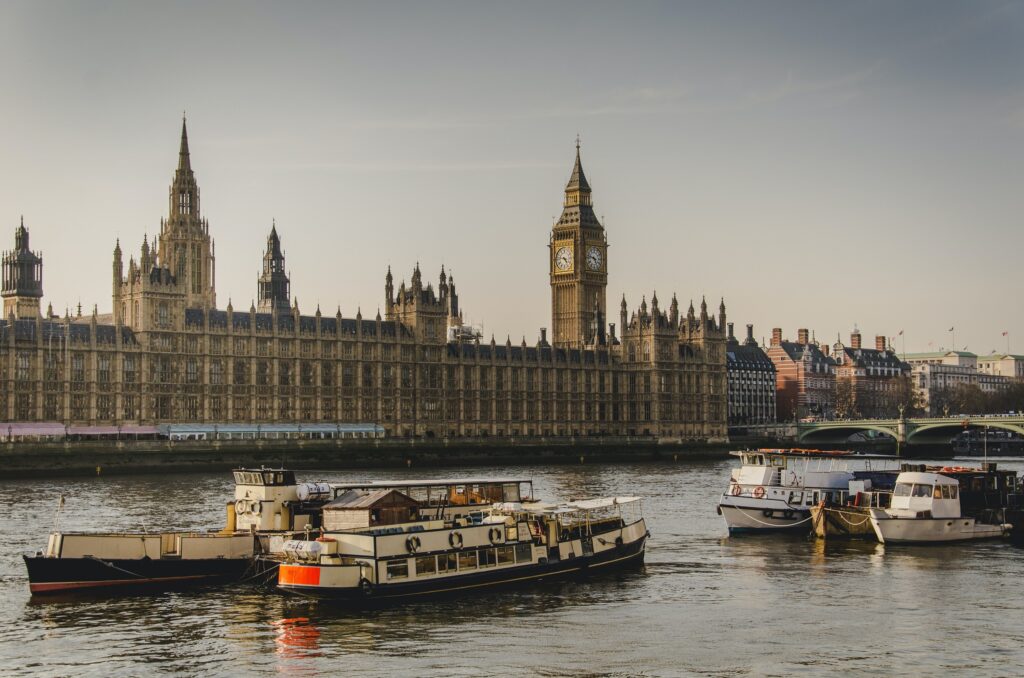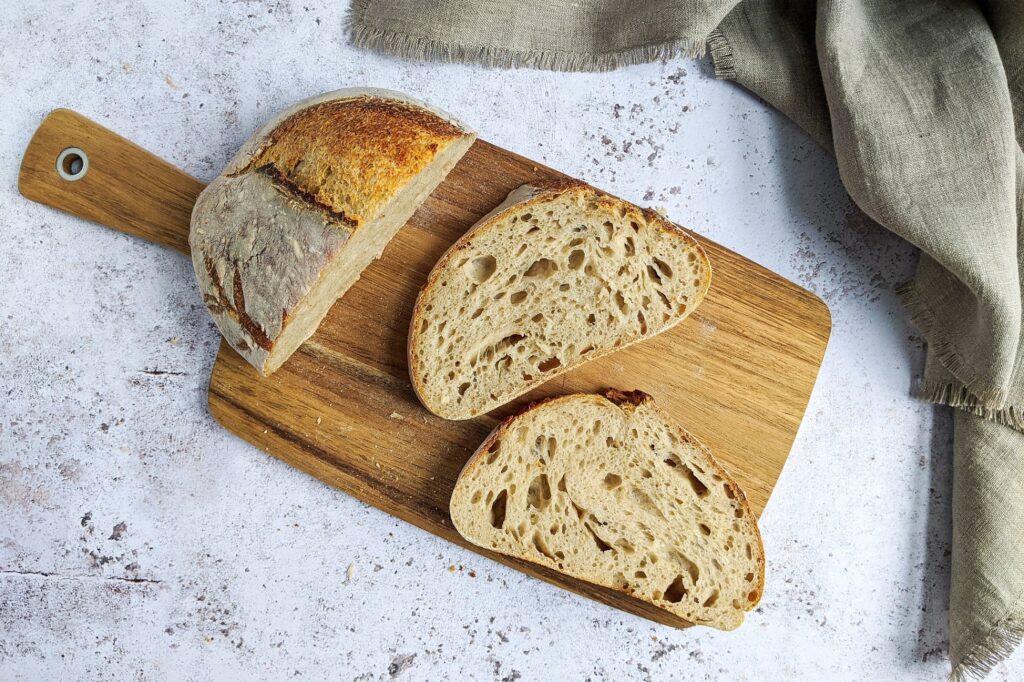I woke up this morning and checked my news feed to see inflation had risen once again in the month of February. This is unsurprising for reasons I will get to further down in this article, but the worrying thing was Sky News attributed the rise in inflation to ‘food and booze’ price increases. Is this true – and if not, what causes inflation?
Well right off the bat, the assertation by Sky News that food and alcohol price increases are causing inflation is categorically wrong. There seems to be a worrying trend in society where news outlets and politicians don’t seem to understand what inflation is and what causes inflation.
Let’s explore inflation further.
What is Inflation and What Causes Inflation?
Inflation is actually a remarkably simple concept. It is best described as your money not being able to afford the same goods and services as it did before.
For example, the cost of a loaf of bread might be higher in 2023 than it was in 2013 because the money you are using to buy it doesn’t have the same value.
It can be easy to assume the price increase of the bread is the cause of inflation – but this is incorrect. It is correct to believe the value your currency in your pocket has declined. The price of the bread is merely a symptom of inflation – not a cause.
So, what causes inflation?
There are ONLY TWO factors that can cause inflation.
- Government spending.
- Governments printing more money.
That’s it, there are no other causes of inflation.
Of course, politicians like to lie and blame external factors for causing inflation – and this is dangerous territory because these lies mislead people into voting for irresponsible governments.
The Case for Food Prices Causing Inflation?
Why then did Sky News attribute inflation to food and alcohol price increases? The answer here is likely whoever wrote that news article has no idea what inflation is.
It seems common across mainstream media outlets that journalists have no knowledge about how economies work. Instead of reporting accurately, they grasp at what they guess is causing the inflation and run with it.
Debunking the Idea that Price Increases Cause Inflation – What Causes Inflation?
We can easily debunk the statement about food price increases causing inflation.
Let’s assume a loaf of bread increases by 50p. In isolation, this is just a price increase. If you have sensible monetary policy (low government expenditure and no additional money printing) this would simply be a reflection of the market.
This is called supply and demand economics. If the supply of bread is short, the price increases. This does not cause inflation.
The value of the money you are using to purchase the bread remains unchanged in this scenario and you can either afford the price increase or you can’t.
Inflation is when the Value of Your Money Changes
In the example above we had a responsible government – but let’s assume we have a financially irresponsible government like we have now.
Lots of social spending and printing lots of new money to try and balance increasing deficits.
The price of bread may well increase as a result of supply and demand economics – but with reckless government policy the money you have to afford that increase is less valuable.
This is commonly known as inflationary pressure. The inflation makes it much more difficult to afford the price increase that may have been wholly affordable if there was no inflationary pressure.
Why is this Government Reckless? – What Causes Inflation?
We have established there are only two causes of inflation. In order to tackle inflation, a government needs to significantly reduce public spending and reduce printing new money.
In the latest budget, this government announced more public spending, freezing the energy price cap and providing additional money to struggling households during the cost of living crisis.
This is populist policy making because people mistakenly believe they are being helped by the government. In the short term they may well benefit from an extra few hundred pounds or their energy bills not rising – but in the long term they pay a greater price.
The more money you pump into the economy – the higher the rate of inflation. Giving people free money exacerbates the situation and causes more inflation.

A Good Government Would Take the Stabilisers Off
A financially competent government would realise how detrimental inflation is and understand that in the medium and long term a prolonged period of inflationary pressure will cause significant problems.
A good government would stop providing financial support to the people.
But that sounds cruel right? These people need help. They need that money.
The truth is a good government needs to be cruel to be kind. A short period of inflationary pressure that is corrected by good government policy is much better for households than a prolonged period of inflation and recession.
In short, would people rather struggle to pay bills for a month or two, or would they prefer to struggle at increasing rates over a number of years?
It becomes clear, that so-called cruel policy making isn’t cruel at all. It is the ONLY way to escape this mess.
What Happens Next with Inflation? – What Causes Inflation?
As things stand, with government spending remaining so high, inflation will keep increasing.
This increased spending will create a larger deficit – commonly known as government debt.
There is no such thing as government money – the ONLY money a government has is your money – taxpayer money.
To repay this deficit a government must increase taxes or cut public spending to the value of the debt.
Over the next year with government policy as it is, you can expect increasingly higher taxes, higher inflation and continued government spending.
This means your hard earned money is becoming less valuable and on top of your diminished spending capability, you also have a higher tax burden to further erode your personal finances.
The good news, your energy bill won’t go up because that wins a political party votes. Forget being an effective and financially responsible government, just give people handouts to make the unbearable cost of living crisis seem a little more manageable and create more inflationary problems.
You May Also Want to Know about What Causes Inflation
What’s the difference between price increases and inflation?
Price increases are the rise in price charged for goods and services by companies. There is a myriad of factors that impact the price of say a loaf of bread at the shop. For example, if the wheat yield for any given year is poor, this would push up the price of grain. As you can appreciate this is very different to inflation which is the devaluation of the actual money you have to purchase the bread.
How does government money printing devalue currency?
In short, the more currency that is in the economic marketplace, the less rare it is. In much the same way as gold would become cheaper if there was more on the market, money effectively becomes cheaper the greater the supply. This means the £10 note in your pocket has less purchasing power because it is not worth as much.
Why do newspapers incorrectly blame energy prices for inflation?
As with many things in life, it is very easy to see the end result and believe that is the issue. If your grocery shop is more expensive it is easy to fall into the trap of believing that food prices have caused inflation. The same can be said about energy costs. Newspaper journalists are often English graduates and may not necessarily understand economics. Lastly, the government often puts out bulletins to the media and it is in their interests to shift the narrative away from poor governmental monetary policy.
Can supply shortages actually cause inflation or just price changes?
In of themselves absolutely not. A supply shortage will increase the price of the specific good or service that is short on supply but will not cause the money in your pocket to devalue. Now, if a government introduces a policy, like an energy price cap which then relies on government spending, a supply shortage can be a contributor to inflation – but the key isn’t the actual supply shortage, it is the erroneous government policy that has caused the inflation.
What’s wrong with saying ‘food prices are driving inflation’?
Food prices can never drive inflation. Food goods and services have no way of printing more money or curtailing money to the open market so there is no mechanism by which the increase in your grocery shop price can drive inflation. Inflation however can keep food prices consistently high – and it is this aspect people confuse, believing the symptom of the problem is the problem itself.
How does government spending create inflationary pressure?
The term government spending is odd, in the same way that government money is a misnomer. The government has no money; it is your money the government spends that they collect through taxation. If the pot from the tax collection is not enough to meet the amount the government intends to spend then they have a few options such as borrowing money or printing more money. Both borrowing money and printing money creates inflation because it devalues the current money in circulation either by diluting the money supply or by servicing the debt costs (yes, governments pay interest on their loans too).
Why is reducing government spending the only way to stop inflation?
Reducing government spending is not the only way to stop inflation although it is a significant tool a government can use to bring inflation down. Most governments unfortunately don’t reduce government spending or don’t do it to a meaningful level to have an impact on inflation and instead like to use central bank interest rates to limit the flow of money in an economy and artificially reduce inflation. The problem with using interest rates is it only masks the problem and hasn’t actually reduced inflation over the long term – for example, despite decades of interest rate controls, your £10 today is worth far less than it was in 1980. The inflation still occurred, the interest rate changes just masked it by slowing periods of rapid inflation, so it became less noticeable to the average citizen.
What did Milton Friedman mean by ‘inflation is everywhere a monetary phenomenon’?
Milton Friedman (a Nobel Laureate in Economics) famously said “Inflation is everywhere a monetary phenomenon.” The term was first used in his lectures during the 1960s and developed later in two works ‘The Counter-Revolution in Monetary Theory,’ 1970 and, ‘Free to Choose,’ 1980.
At its core it means that anywhere you find inflation, it is caused by government spending or policy. Most notably Friedman was concerned with governments printing more money and credit expansion measures.
This wasn’t just an economist’s opinion, in coming to his conclusion Friedman had rigorously studied inflation from countries all over the world and uses many real life examples to substantiate this claim.
